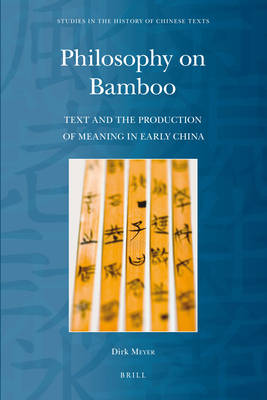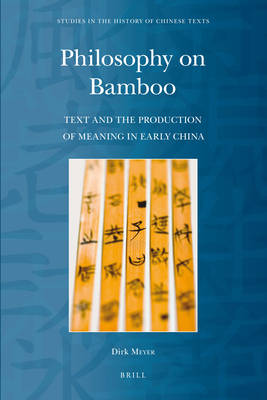
- Afhalen na 1 uur in een winkel met voorraad
- Gratis thuislevering in België vanaf € 30
- Ruim aanbod met 7 miljoen producten
- Afhalen na 1 uur in een winkel met voorraad
- Gratis thuislevering in België vanaf € 30
- Ruim aanbod met 7 miljoen producten
Zoeken
€ 297,95
+ 595 punten
Omschrijving
Scholarship on early Chinese thought has long tended to treat texts as mere repositories of ideas rather than as meaningful objects in their own right. Not only does this approach present an idealised account of China's intellectual past, but it also imposes artificial boundaries between textual and philosophical traditions. As the first study to treat text as a cultural phenomenon during the Warring States period, this book demonstrates the interplay among the material conditions of text and manuscript culture, writing, and thought. Through close readings of philosophical texts excavated at Guōdiàn, it analyses crucial strategies of meaning construction and casts light on the ways in which different communities used texts to philosophical ends. Meyer thus establishes new understandings of the correlation between ideas, their material carrier, and the production of meaning in early China.
Specificaties
Betrokkenen
- Auteur(s):
- Uitgeverij:
Inhoud
- Aantal bladzijden:
- 408
- Taal:
- Engels
- Reeks:
- Reeksnummer:
- nr. 2
Eigenschappen
- Productcode (EAN):
- 9789004207622
- Verschijningsdatum:
- 14/11/2011
- Uitvoering:
- Hardcover
- Formaat:
- Genaaid
- Afmetingen:
- 165 mm x 246 mm
- Gewicht:
- 793 g

Alleen bij Standaard Boekhandel
+ 595 punten op je klantenkaart van Standaard Boekhandel
Beoordelingen
We publiceren alleen reviews die voldoen aan de voorwaarden voor reviews. Bekijk onze voorwaarden voor reviews.








